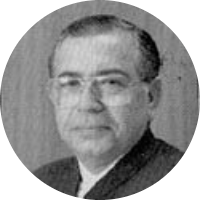B.N Kirpal

B.N Kirpal
Former Chief Justice of India
Assumed Office6th May, 2002
Retired On7th Nov, 2002
Previously
Chief Justice of the Gujarat High CourtDecember 14th 1993 - November 8th 1995
Permanent Judge of Delhi High CourtNovember 19th 1983 - December 13th 1993
Additional Judge of Delhi High CourtNovember 20th 1979 - November 18th 1983
Enrollment1962
Profile
Justice Bhupinder Nath Kirpal began his career as an advocate in 1962. He worked in the Delhi High Court as a Central Government Pleader. Later he became the Additional Standing Counsel for the Income Tax Department.
He was appointed as the Additional Judge at the Delhi High Court in 1979. In 1983, he was appointed as the Permanent Judge of the Delhi High Court. He became the Chief Justice of the Gujarat High Court in 1993.
He was appointed as a judge of the Supreme Court in September 1995. He served as the Chief Justice of the Supreme Court between 6th May and 8th November 2002.
After his retirement, he served as the Chairman of the National Forest Commission.
In his eight-year tenure at the Supreme Court, he authored 195 judgements and was part of 916 benches.
Justice Kirpal mostly dealt with cases about civil and service matters. He also heard several cases on the property and constitutional law, along with cases on income tax and VAT.
Notable Judgements
In M.C. Mehta vs Union Of India And Ors, a three-judge bench of Justice Kirpal, Justice V.N. Khare and Justice Ashok Bhushan passed a judgement in 2002 regarding the allocation of CNG. The Court imposed a duty on the State to protect and improve public health, and to improve the quality of air in Delhi.
In T.M.A. Pai Foundation and Ors. vs. State of Karnataka and Ors. Justice Kirpal authored the judgement stating that minority groups have the right to establish educational institutions under Article 30(1) of the Constitution of India, 1950. He noted that all individuals have a right to establish and administer educational institutions under Article 19(1)(g) and Article 26, and specifically minorities under Article 30. Minorities whether linguistic or religious, have to be ascertained state-wise.
In T.N. Godavarman Thirumulkpad vs Union Of India, a division bench consisting of Justice B.N. Kirpal and J.S Verma issued detailed directions for the sustainable use of forests and creating a monitoring and implementation system through regional and state level communities, regulating the felling, use and movement of timber across the country in the hope of preserving the nation's forest. The bench examined the meaning of the word ‘forest’ in the Forest Conservation Act, 1980 and also held that no commercial activities could take place in any place classified as a ‘forest’ without prior Central Government approval.
In Union of India v Delhi High Court Bar Association, a three-judge bench upheld the constitutional validity of the Recovery of Debts Due to Banks and Financial Institutions Act, 1993. Its validity had been challenged on the grounds of it being arbitrary and hence in violation of Article 14 of the Indian Constitution. In a judgment authored by Justice Kirpal, the Supreme Court overturned the decision of the Delhi High Court. And held that under Entry 45 of List I of the 7th Schedule of the Constitution, the Central Government had the power to legislate on matters relating to banking. Thus the Government could set up an adjudicatory authority like the Banking Tribunal. Establishing a pecuniary jurisdiction that infringed on the original jurisdiction of a few high courts could not be a ground for holding the Act invalid as the High Courts in question could easily divest themselves of their original jurisdiction.
In Narmada Bachao Andolan v UOI, a division bench consisting of Justice B.N. Kirpal and A. Anand observed the importance of tribal rights and opined that no tribal populations could be removed from their lands without free consent. Unless such removal without consent was following national laws. It allowed the construction of the project that the petitioners were protesting against by stating that this project was a matter of policy and therefore at the prerogative of the Government. Justice Kirpal held that in stopping the project, the Court would be interfering in governmental function. While giving the green signal for the project, however, the Court also issued directions to the Government to rehabilitate and provide relief to those displaced by the project.
In Bhavesh D. Parish v UOI, the appellants argued that Section 45S of the Reserve Bank of India Act, 1934 was unconstitutional due to being arbitrary under Article 14 and in violation of the right to carry trade and business under Article 19(1)(g). Section 45S enumerated all the instances under which a firm or an individual could not accept any deposit. The judgment found that the right to carry trade and business was not absolute and was subject to reasonable restrictions. It further held that this prohibition was made in the public interest and that there was a reasonable connection between the restriction imposed and the object sought to be achieved. In light of this, it ruled that the provision was in no way arbitrary and hence was not in violation of Article 14.
